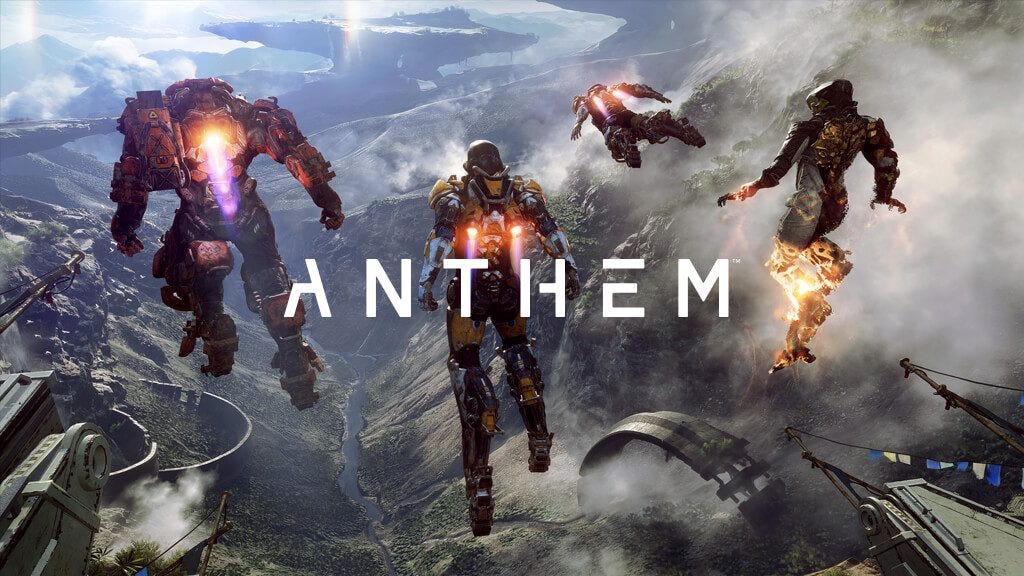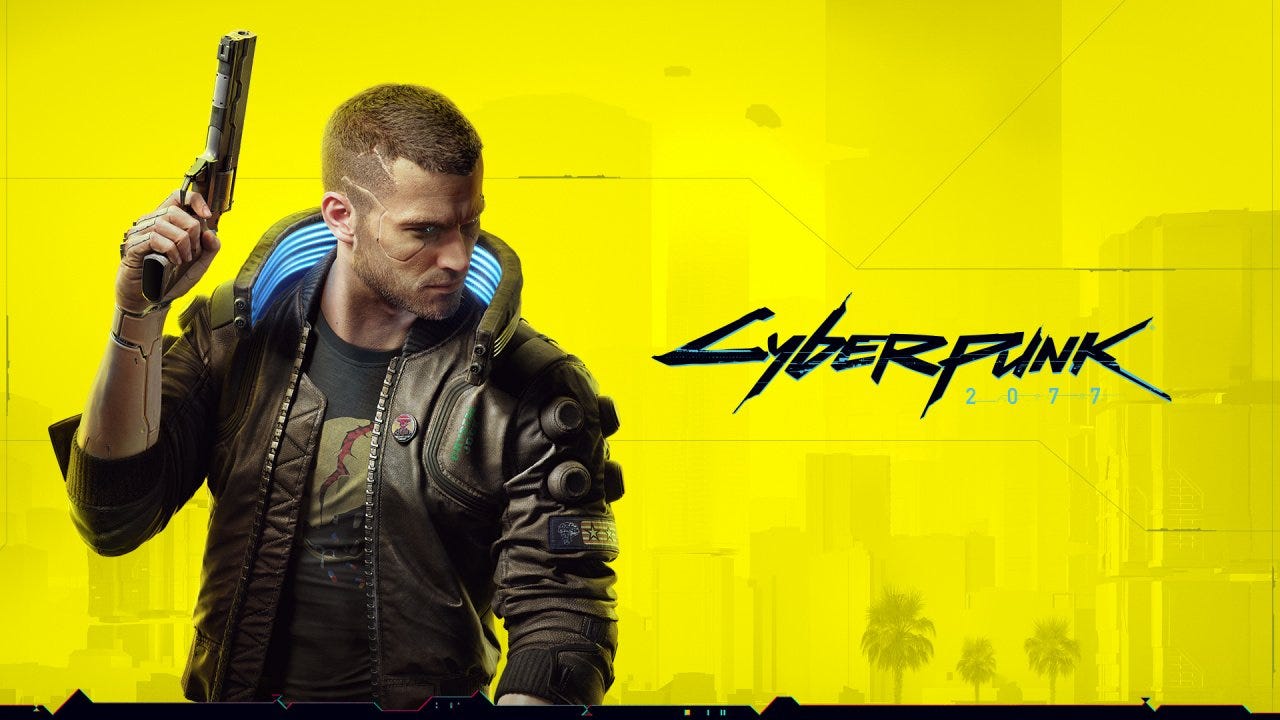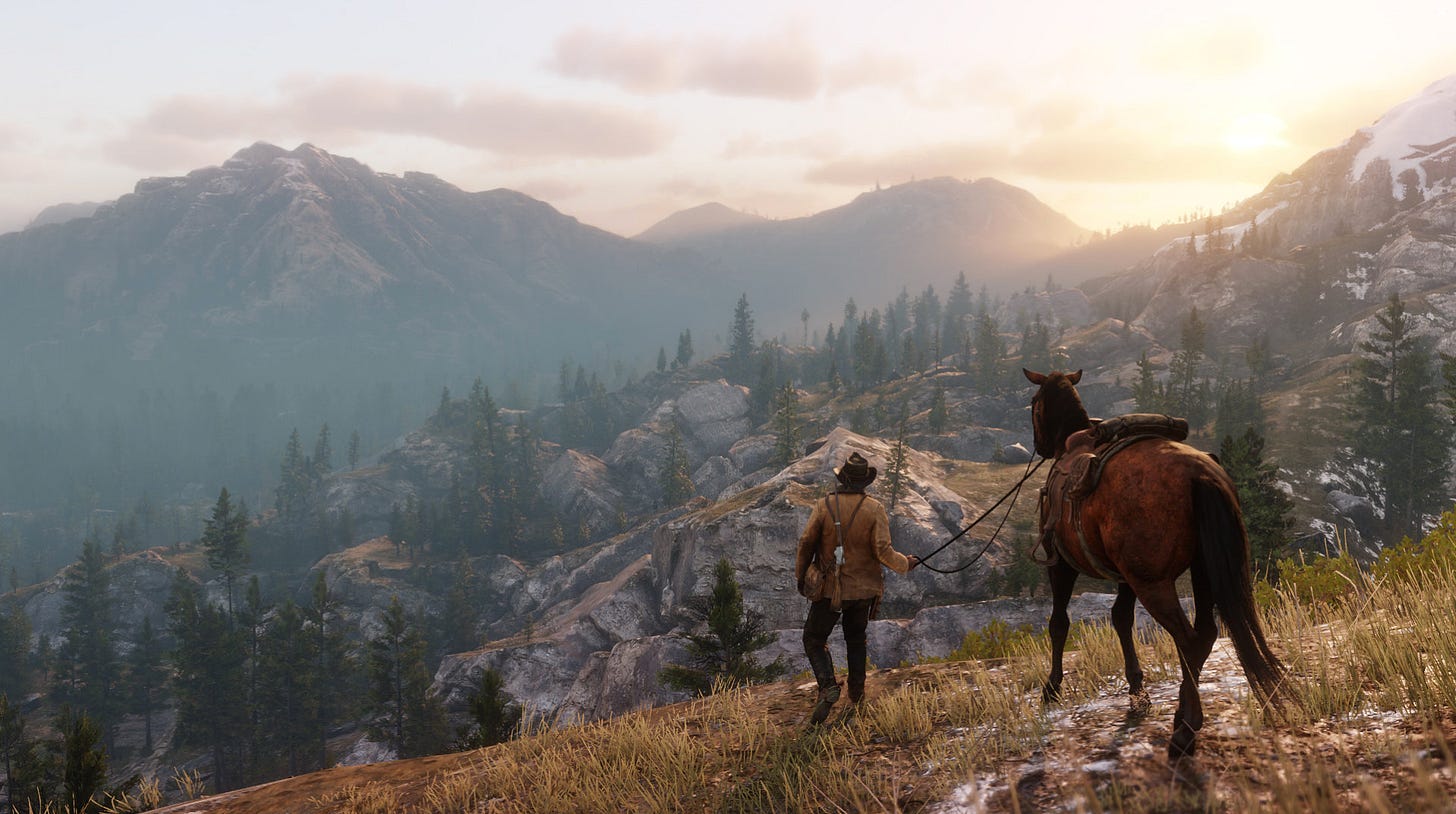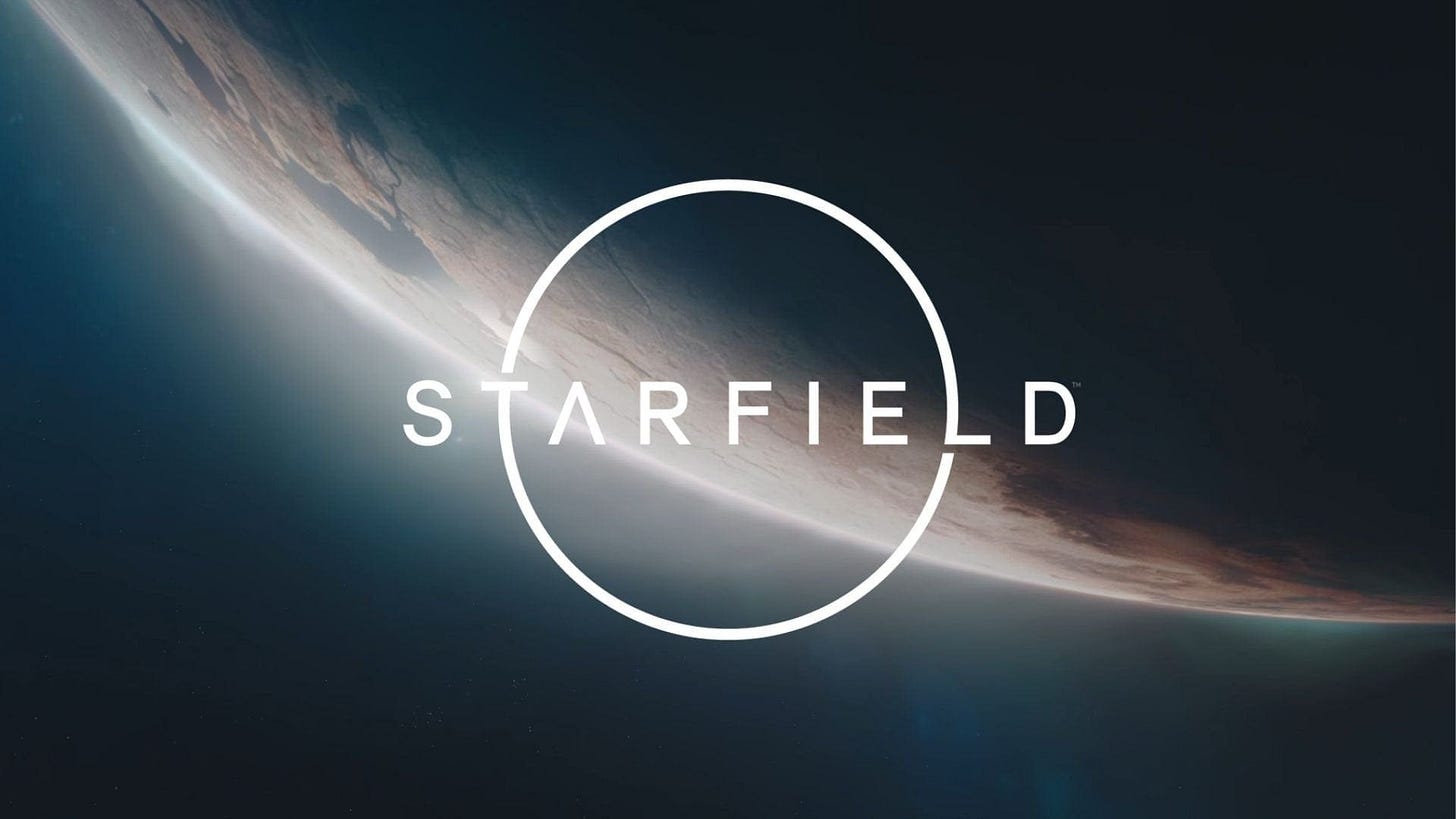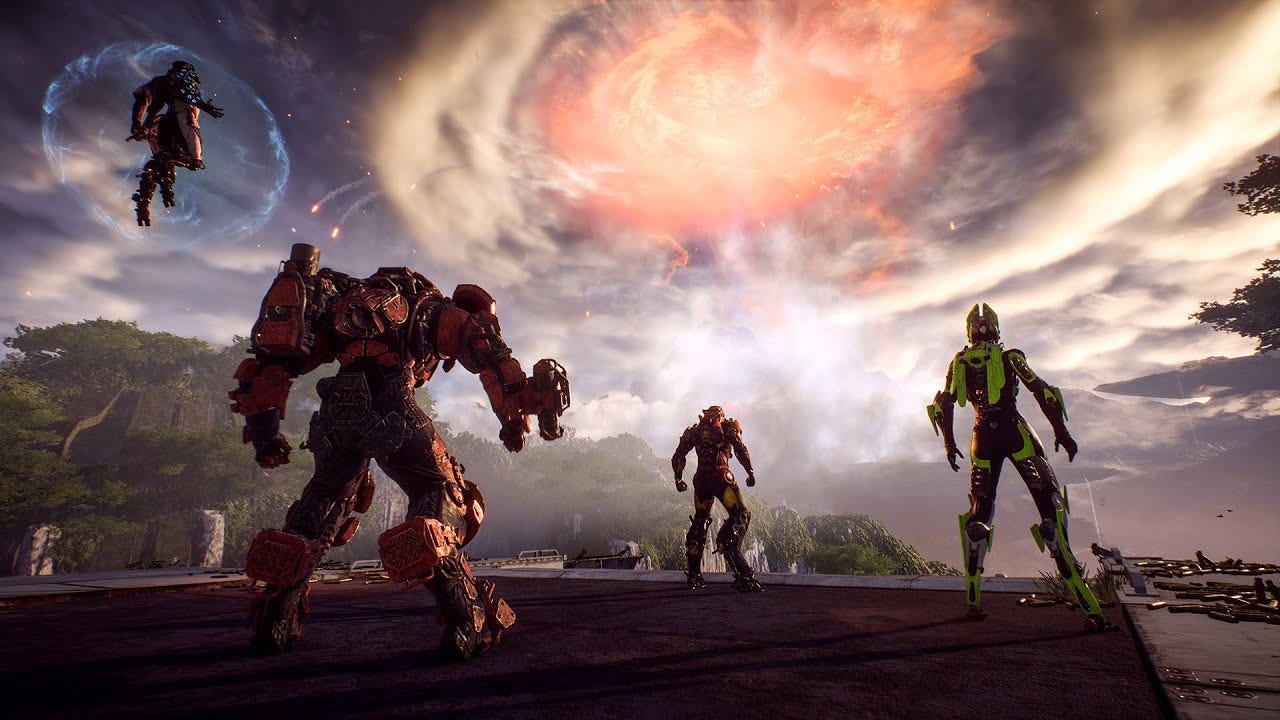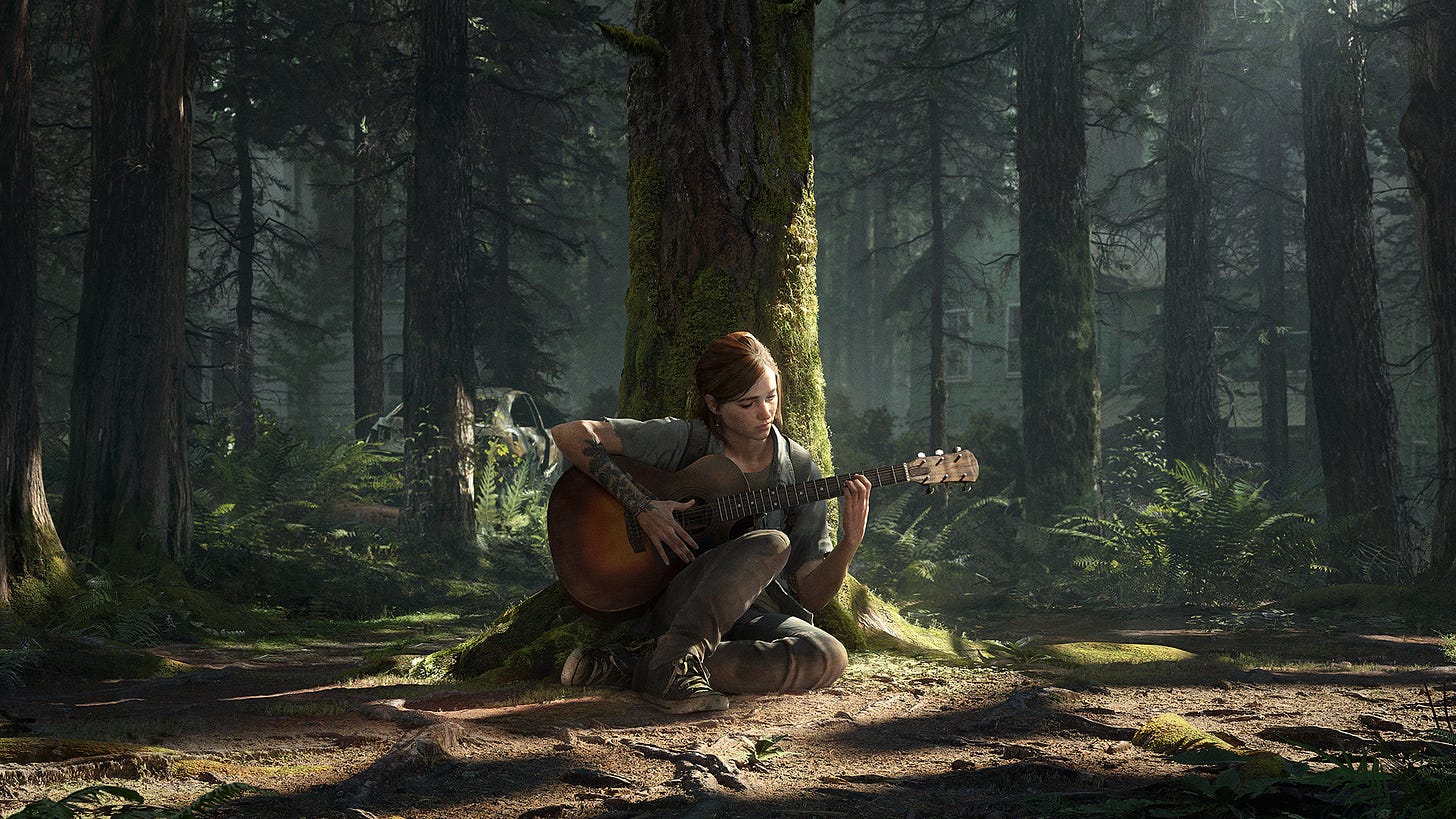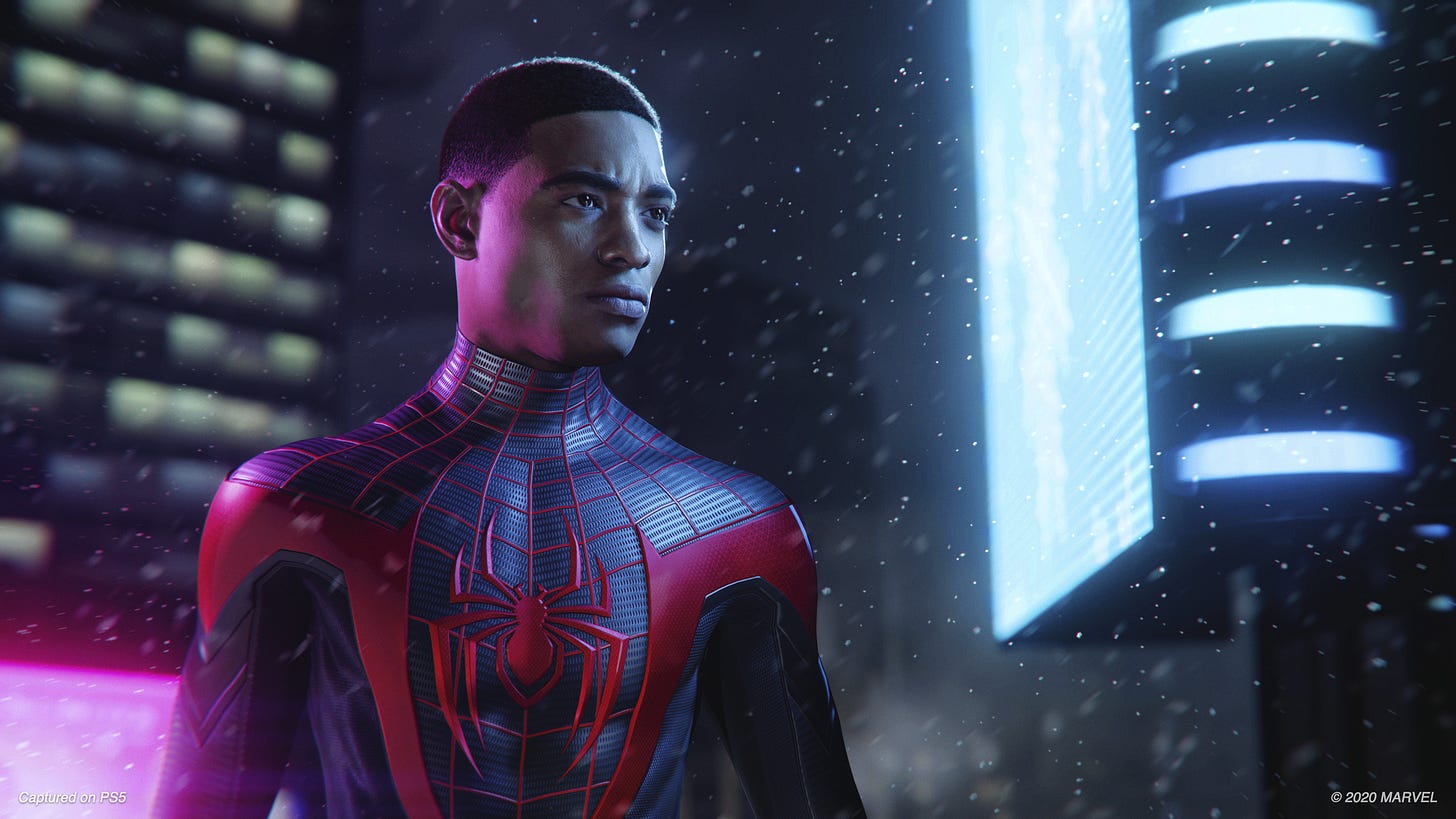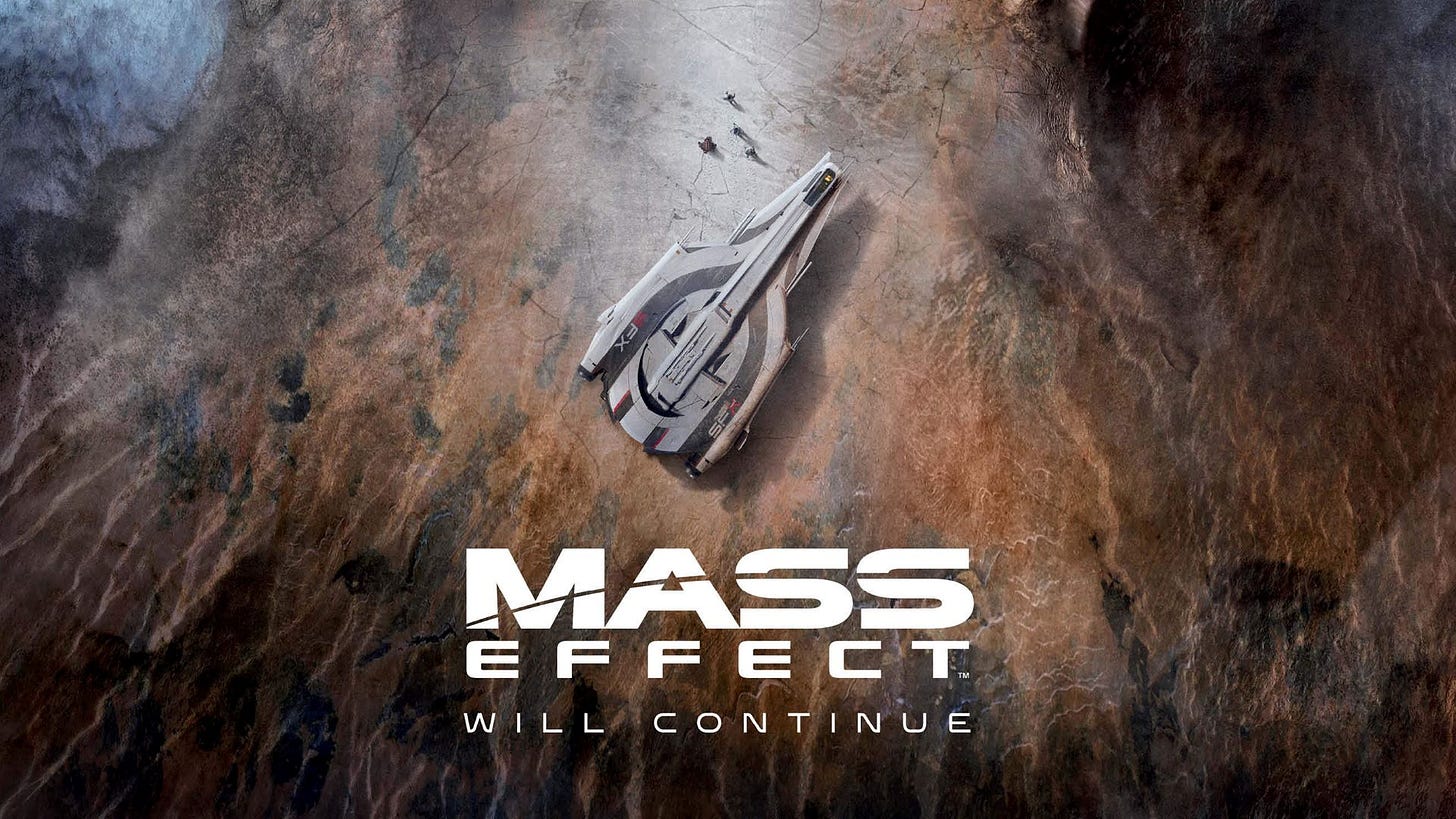AAA Games Are Being Crushed By Their Own Size and Ambition
Industry legends from the past couple decades struggle to create the same magic they did in years past
As we voyage into a new generation of video games, there’s no doubt people are waiting to see what games will be the poster children (I’ve literally never heard poster child used in the plural sense, but I’m going for it) of the next decade. In the past, we’ve had franchises like Half-Life, Halo, Skyrim, The Last of Us, and Grand Theft Auto show us what the pinnacle of gaming can look like. Games like these went above and beyond the industry standard. They provided detail, scale, polish, and interactivity that many of us didn’t even know was possible. The thing is, once we know it’s possible, it’s not as impressive. So, for the next best thing to feel like "the next best thing," you need to up the ante, but at what cost?
Taking a Look at the Timelines
Like I’m sure everyone might say, I believe I grew up in the golden years of gaming. To support my argument, let me drop just a fraction of the best games (and the studios that made them) that were released when I first started seriously getting into (AAA) gaming.
Halo 2 - 2004 - Bungie
Halo 3 - 2007 - Bungie
Halo ODST - 2009 - Bungie
Halo Reach - 2010 - Bungie
Destiny - 2014 - Bungie
Oblivion - 2006 - Bethesda
Fallout 3 - 2008 - Bethesda
Skyrim - 2011 - Bethesda
Fallout 4 - 2015 - Bethesda
Uncharted 1 - 2007 - Naughty Dog
Uncharted 2 - 2009 - Naughty Dog
Uncharted 3 - 2011 - Naughty Dog
The Last of Us - 2013 - Naughty Dog
GTA San Andreas - 2004 - Rockstar
Bully - 2006 - Rockstar
GTA 4 - 2008 - Rockstar
Red Dead Redemption - 2010 - Rockstar
GTA 5 - 2013 - Rockstar
Mass Effect 1 - 2007 - BioWare
Dragon Age - 2009 - BioWare
Mass Effect 2 - 2010 - BioWare
Dragon Age 2 - 2011 - BioWare
Mass Effect 3 - 2012 - BioWare
Dragon Age: Inquisition - 2014 - BioWare
Witcher 2 - 2011 - CD Projekt Red
Witcher 3 - 2015 - CD Projekt Red
Bungie - 5 Quality Games in a 10 Year Span
Bethesda - 5 Quality Games in a 11 Year Span
Naughty Dog - 4 Quality Games in a 6 Year Span
Rockstar - 5 Quality Games in a 11 Year Span
BioWare- 5 Quality Games in a 7 Year Span
CD Projekt Red - 2 Quality Games in a 4 Year Span
Am I crazy, or were we getting banger AAA installments year after year? We got the entire Mass Effect Trilogy in five years. We got Skyrim and Fallout 3 just three years apart. I really hope I’m getting across how wild that was.
Now let’s take a look at what some of the same studios have done recently. These companies have only grown larger. The technology and tools have only gotten better. So that means logically we must be getting the same amount of, if not more, breathtaking adventures from these iconic studios...right?
Note: Bungie has been in the unique situation of launching and managing an MMO (and being acquired by PlayStation), so I’ll exclude them from the conversation and focus on studios that are primarily working on single-player focused games.
Bethesda Studios (Todd Howard’s team specifically) has released ONE new game since the launch of Fallout 4 in 2015. That game was the MMO Fallout 7,6, which was released in 2018. That game was by far the worst release in the studio’s history. Their long-awaited space-themed single-player game Starfiel,d is set to launch in November of 2022, making that a 7-year gap between single-player titles.
Rockstar has released ONE new game since GTA V in 2013. They released Red Dead Redemption 2 in 2018, a 7-year gap between new titles.
BioWare has released TWO new games since their big 2014 hit, Dragon Age: Inquisition. Mass Effect Andromeda dropped in 2017 and Anthem in 2019, both of which were spectacular flops for the developer.
CD Projekt Red has released ONE game since their (inserting bias here) masterpiece that was The Witcher 3. Cyberpunk 2077 dropped 5 years later at the tail end of 2020 and was arguably the worst AAA game launch in the past 15 years.
Naughty Dog has released THREE new games since the critical darling The Last of Us. Uncharted 4 dropped in 2016, Uncharted Lost Legacy dropped in 2017, and The Last of Us 2 dropped in 2020. Naughty Dog is the only studio on this list that has been able to consistently maintain their game output without catastrophic dips in quality.
The AAA Plague
Many of the studios discussed above could be considered the grandfathers of modern gaming. Year after year, they came back with games that exceeded expectations and set new standards for their respective genres.
So why is it that in the last decade many of them have had their game output slow down to a snail's pace, or even worse, seen their recent projects not only underperform but face unprecedented fan backlash?
Ambition and Size
To start, I think we’ve gotten to the point where every installment of a AAA game is striving to be way too ambitious. Remember when I talked about a game “feeling like the next best thing”? It seems like some AAA studios believe the only way to achieve that is by making a game 2-3 times larger and more detailed than their last. Marketing teams seem to be salivating at the mouth to tell us how many hundreds of hours of content are in the game, how the world map is bigger than the state of Texas, or how horse genitals will now shrink and expand with the weather.
Sure, these things can be cool, but is it really worth it?
I’m not always looking for every big developer to release a larger-than-life epic in one single game. I don’t need a game to address everything I’ve ever dreamed of (and some things I never even imagined) in a cyberpunk dystopia or an old western.
I don’t want to come off like I’m unappreciative of these once-in-a-generation, super ambitious projects, but when these games bring studio output down from roughly 5 games a decade to one, it’s both concerning and a bit disappointing.
Imagine going to your favorite restaurant once a month for the last decade. One day, you walk in to discover they've added one of the top 10 best meals you’ve ever had to the menu. Sounds great right? Well, maybe, until they tell you that to continue to serve that one item, they’re going to remove every other item on the menu. They can also only afford to open once every two years for whatever reason, oh, and there’s no guarantee that one item will taste as good as it did this time. Not sure that’s the best analogy, but that’s what I feel is happening to a lot of the veteran AAA gaming studios now.
Creative Sparks
Take a second look at the list of games I posted. Do you notice anything interesting?
Yeah. There are a lot of sequels.
That’s because when you have a story and design that has already proven it can capture a player's attention, your job becomes a lot easier. The world, characters, and gameplay mechanics already have a foundation that can be built upon.
The problem is that a lot of those franchises we reminisce on have happily concluded. Which means their creators (or their protegees) have had to go back to the drawing board. As we’ve seen with BioWare and CD Projekt Red, it’s not easy to make a compelling and unique story that pairs well with innovative and dynamic gameplay.
When a new IP clicks with the intended audience, it’s almost like catching a golden snitch. It leaves players craving more, and it often establishes a blueprint for a studio’s next 10 years’ worth of projects.
But until that golden IP is found, it’s almost as if we’re all looking at a doomsday clock, wondering if these teams have enough time, talent, and funding to make the same magic that they have in the past.
Unwieldy Budgets
AAA games are called AAA because of their massive budgets. They are the blockbuster movies of the games industry. They require both an insane amount of effort and money to get made, which is why there are only a few that get made each year.
Remember when I talked about how ambitious some of these games are becoming? Well, that ambition comes with a price tag. Often, a multi-million dollar price tag. And that price tag doesn’t remain constant; it grows.
To meet those ambitious goals, developers need a surplus of time, often more than they originally budgeted for. So now these projects are over-budget and off schedule. That means the pressure is on. The budget isn’t infinite, but the game needs to be perfect if they want to make a profit, right? The game has to fulfill the promises it made when it was revealed, but it turns out those things are way harder to implement in a game than they thought. I can only imagine how vicious the cycle can become.
Let’s say we’ve finally made it to the finish line. The 7-year, multi-million dollar project is finally out the door. What happens if that project flops? Now there’s no funding for the next project, and the publisher needs to recoup its investment. So nowadays it seems the answer is to chase the live service game. Something that can keep the money printing while the studios work on what they really want to. The only problem is, why let the studios work on what they want to when the live service has become a cash cow? It sometimes seems like there's no winning.
As the video game industry grows, ironically, we’re at the point where fewer and fewer studios have the financial support to take risks on interesting AAA projects. Many of these projects are too expensive and often have no way to generate revenue beyond the initial game sale. So they get passed up in favor of an online game that can easily hook a player for hundreds of hours and serve microtransactions.
The Answer
So what is the fix? How can our favorite studios make more games with a consistent level of quality like back in the old days?
While I don’t think there is a magic bullet that solves all of the struggles of the AAA conundrum, I do think there’s a solution. I’m not in the video game industry and at the end of the day, I’m just observing the little bit of inside baseball that I can find, but there is clear proof that there is an answer to this problem. While it seems like all of the big publishers have had identity crises trying to look for the next big thing, one lone company has stood tall.
PlayStation Studios.
PlayStation Studios has Perfected the Formula
Throughout the PS4 generation, PlayStation rose to dominance in the single-player action-adventure genre. They have seen success after success with an array of studios. They have done so well that Insomniac Games is seen as the gold standard in the industry right now, having released or announced:
Spiderman - 2018
Spiderman: Miles Morales - 2020
Ratchet and Clank: Rift Apart - 2021
Spiderman 2 - Announced
Wolverine - Announced
This is the quality and output I’m talking about. All three of Insomniac’s projects released in the past 4 years have been met with high praise, and fans can’t wait for what they’re cooking next.
So how has PlayStation been able to build this unrivaled stable of both old and new IPs across countless studios? What’s their secret formula?
Reducing Scope
The reason studios like Insomniac and Naughty Dog can pump out titles so fast is that they aren’t afraid to release a contained experience. They look at the IPs and technology they have at their disposal, and they put them to good use.
PlayStation is one of the only AAA publishers letting its studios consistently put out smaller, bite-sized projects. For example, take a look at Uncharted: Lost Legacy, Infamous First Light, Spider-Man Miles Morales, and Astro’s Playroom. These games were all much smaller than their predecessors and built on existing engines and mechanics, but they were fantastic nonetheless.
Games like Ghost of Tsushima, God of War, Bloodborne, and Horizon Forbidden West are big, but they’re not trying to be a dozen different things in one. They provide just enough gameplay and storytelling mechanisms to hook the player, and nothing more.
Stick To Your Roots
I hate for this to be a shut up and dribble situation, but a lot of these studios should continue to have a foot planted where they started. Every game doesn’t need to have a sprawling open world. Every game doesn’t need to be online. Every game doesn’t need to be a live service. Sometimes people just want a good story and a fun mechanic.
That’s not to say studios shouldn’t innovate, but there’s a reason those developers were so beloved back in the day, and there’s a reason PlayStation has been seeing repeated success. It’s because well-crafted narratives and gameplay experiences resonate with people. For my sports fans out there, it’s why everyone was so baffled when the Seahawks threw the ball at the 1-yard line with the Super Bowl on the line. They had successfully run the ball up to that point and yet decided to abandon that strategy. Don’t fix what’s not broken. Continue to reward supporters by giving them experiences similar to what brought them to you in the first place.
Changing of the Guard
We’ve already seen PlayStation champion these ideas for over a decade, but it’s time for other publishers to step up and start also funding these types of projects. It’s not about always hitting the billion-dollar GTA V home run; sometimes it’s about building a solid swathe of series to choose from. Let’s get more Bioshocks, more Fables, more Sly Coopers.
It does seem like there is a new group of studios that are starting to be seen as the gold standard. I’ve already mentioned Insomniac and Naughty Dog, but there’s also:
Arcane
Respawn
Sucker Punch
Obsidian
FromSoftware
Playground Games
The Coalition
And many more that I’ve left out. Hopefully, after teams can get their tools and engines ramped up for the newest generation of hardware, we’ll soon start to see what they have been working on.
Settling Back Into Place
I don’t think it’s over for the studios I touched on at the beginning of this article. I just think they and their publishers needed a bit of time to do some soul-searching. Luckily, it seems like a lot of big publishers are coming back around to support teams and franchises that we’ve come to know and love over the past couple of decades.
With Microsoft’s gargantuan investment in gaming studios, I hope their game output ramps up and becomes a AAA powerhouse alongside PlayStation.
EA hit a home run with Hazelight, and they seem to be trying to get BioWare and their other studios back on track and making titles that people have been asking for.
Ubisoft...is still making Ubisoft games.
Take-Two looks like they have no incentive to move with a purpose as long as GTA Online and NBA 2k are printing money, but maybe we’ll get a new Bioshock announcement someday.
Only time will tell if the AAA industry will shift back to the single-player juggernaut that it once was, but I am hopeful.
Side Note: About Nintendo, AA Games, and Others
I wanted to focus this article on a few AAA studios that were leading the industry when I was growing up. I know the AAA space is much larger than the big RPG and single-player makers that I covered. Many publishers like Epic and Activision have seen success with their free-to-play multiplayer behemoths, and Ubisoft has held strong with its big open-world experiences. I think they are all very different and can be their own discussions.
As for the others...
Nintendo marches to the beat of its own drum, so it’s almost irrelevant in this conversation. Although I do think they’ve had some interesting years as of late.
AA games seemed to have died out for a while, but it looks like they’re coming back with titles like It Takes Two receiving heaps of praise.
Indies honestly seem stronger than ever. Consistently force their way into the game of the year conversation with titles like Hades and Inscryption.
We’ll talk about all of it in due time.


